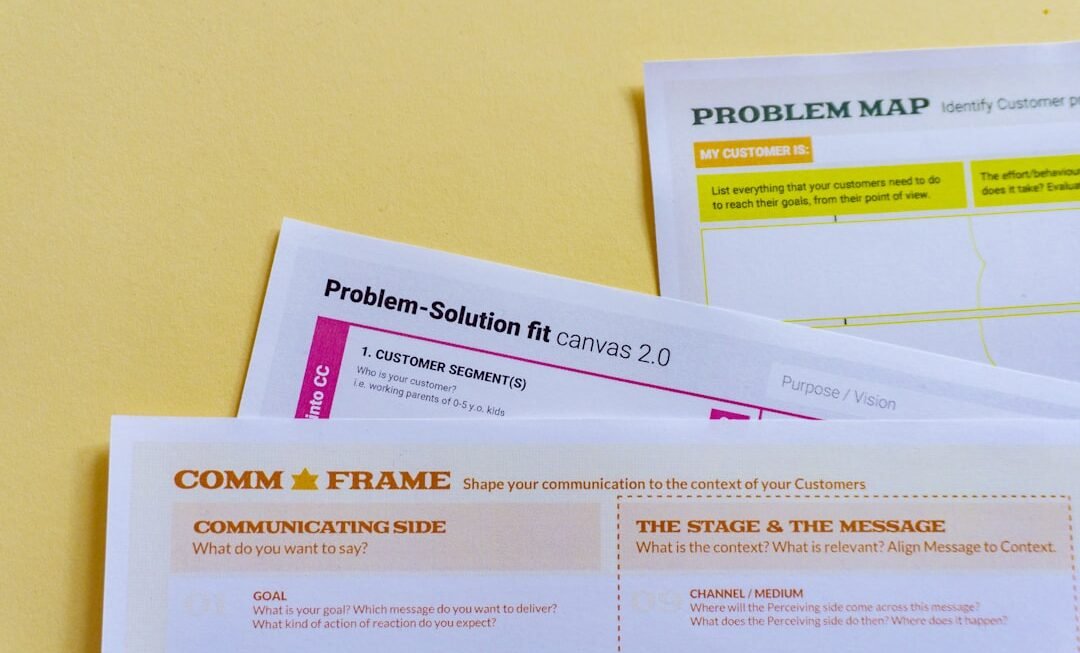The landscape of marketing has undergone a seismic shift with the advent of artificial intelligence (AI), particularly in the realm of influencer marketing. This transformation is not merely a trend; it represents a fundamental change in how brands connect with consumers. Influencer marketing, which leverages the reach and credibility of individuals with substantial social media followings, has become a cornerstone of digital marketing strategies.
The integration of AI into this domain enhances the effectiveness of campaigns, allowing brands to make data-driven decisions that optimize engagement and conversion rates. AI technologies, such as machine learning and natural language processing, are being harnessed to analyze vast amounts of data, enabling marketers to identify trends, preferences, and behaviors among target audiences. This analytical prowess allows for more precise targeting and personalization, which are critical in an era where consumers are inundated with content.
As brands seek to cut through the noise, AI provides the tools necessary to refine their influencer marketing strategies, ensuring that they resonate with the right audiences at the right times.
Key Takeaways
- AI is transforming influencer marketing by revolutionizing content creation, audience targeting, and campaign performance analysis.
- Virtual influencers are on the rise, offering brands a new way to engage with audiences and create authentic content using AI technology.
- AI plays a crucial role in identifying target audiences for influencer campaigns, helping brands reach the right people with the right message.
- The impact of AI on content creation for virtual influencers is significant, enabling the creation of personalized and engaging content at scale.
- AI is used to predict and analyze influencer campaign performance, providing valuable insights for brands to optimize their marketing strategies.
The Rise of Virtual Influencers
In recent years, the emergence of virtual influencers has captivated both brands and consumers alike. These digital personas, created using advanced computer graphics and AI technologies, are designed to engage audiences in much the same way as their human counterparts. Virtual influencers like Lil Miquela and Shudu have amassed millions of followers on platforms such as Instagram, showcasing a unique blend of artistry and technology.
Their rise signifies a shift in how brands can approach influencer partnerships, offering a new avenue for creativity and engagement. The appeal of virtual influencers lies not only in their aesthetic but also in their ability to be meticulously crafted to align with brand values and messaging. Unlike human influencers, virtual personas can be programmed to embody specific traits, ensuring that they consistently represent a brand’s identity.
This level of control allows marketers to create campaigns that are not only visually stunning but also strategically aligned with their objectives. As brands increasingly recognize the potential of virtual influencers, they are beginning to invest in these digital entities as part of their broader marketing strategies.
How AI is Revolutionizing Influencer Marketing
AI is fundamentally changing the influencer marketing landscape by automating processes that were once labor-intensive and time-consuming. For instance, AI algorithms can analyze social media data to identify potential influencers who align with a brand’s target demographic. This capability streamlines the influencer selection process, allowing marketers to focus on building relationships rather than sifting through endless profiles.
By leveraging AI tools, brands can quickly assess an influencer’s reach, engagement rates, and audience demographics, ensuring that they partner with individuals who can effectively amplify their message. Moreover, AI-driven analytics provide insights into consumer behavior that were previously unattainable. By analyzing engagement patterns and sentiment analysis across various platforms, brands can tailor their campaigns to resonate more deeply with their audiences.
This data-driven approach not only enhances the effectiveness of influencer partnerships but also allows for real-time adjustments based on performance metrics. As a result, brands can optimize their campaigns on-the-fly, ensuring that they remain relevant and impactful in an ever-evolving digital landscape.
The Role of AI in Identifying Target Audiences for Influencer Campaigns
One of the most significant advantages of AI in influencer marketing is its ability to identify and segment target audiences with remarkable precision. Traditional methods of audience segmentation often rely on broad demographics or general interests, which can lead to ineffective targeting. In contrast, AI utilizes advanced algorithms to analyze user behavior, preferences, and interactions across multiple platforms.
This granular approach enables brands to create highly specific audience profiles that inform their influencer marketing strategies. For example, AI can analyze social media interactions to determine which types of content resonate most with different segments of an audience. By understanding these nuances, brands can select influencers whose followers align closely with their target demographics.
This targeted approach not only increases the likelihood of engagement but also enhances the overall effectiveness of campaigns. As brands continue to embrace AI-driven audience insights, they are better equipped to craft messages that resonate with consumers on a personal level.
The Impact of AI on Content Creation for Virtual Influencers
Content creation is at the heart of influencer marketing, and AI is playing an increasingly pivotal role in shaping this process for virtual influencers. With advancements in generative design and natural language processing, brands can create compelling narratives and visuals that captivate audiences. Virtual influencers can be programmed to produce content that aligns with current trends while maintaining a consistent brand voice.
This capability allows for rapid content generation without sacrificing quality or authenticity. Furthermore, AI tools can analyze audience engagement data to inform content strategies for virtual influencers. By understanding which types of posts generate the most interaction—be it videos, images, or stories—brands can refine their content creation processes accordingly.
This data-driven approach ensures that virtual influencers remain relevant and engaging over time. As a result, brands can maintain a dynamic presence in the digital space while leveraging the unique advantages offered by virtual personas.
The Use of AI in Predicting and Analyzing Influencer Campaign Performance
Forecasting Success with Historical Data and Trends
The ability to predict and analyze campaign performance is crucial for any marketing strategy, and AI is revolutionizing this aspect of influencer marketing. By employing predictive analytics, brands can forecast the potential success of influencer partnerships based on historical data and current trends. This capability allows marketers to make informed decisions about which influencers to collaborate with and what types of content are likely to yield the best results.
Real-Time Analysis for Data-Driven Strategies
AI algorithms can assess various performance metrics—such as engagement rates, click-through rates, and conversion rates—across different campaigns. By analyzing this data in real-time, brands can identify patterns that inform future strategies. For instance, if a particular type of content consistently performs well across multiple campaigns, brands can prioritize similar approaches in future collaborations.
Enhancing Campaign Effectiveness and Fostering Continuous Improvement
This iterative process not only enhances campaign effectiveness but also fosters a culture of continuous improvement within marketing teams.
Ethical Considerations in Using AI for Virtual Influencers
As the use of AI in influencer marketing grows, so too do the ethical considerations surrounding its application—particularly concerning virtual influencers. One major concern is transparency; consumers may be unaware that they are engaging with a digital persona rather than a human being. This lack of transparency raises questions about authenticity and trustworthiness in influencer marketing.
Brands must navigate these ethical waters carefully to maintain consumer trust while leveraging the advantages offered by virtual influencers. Additionally, there are concerns regarding representation and diversity within virtual influencer campaigns. If brands rely solely on AI-generated personas without considering diverse perspectives, they risk perpetuating stereotypes or excluding marginalized voices from their marketing efforts.
It is essential for brands to approach the creation and promotion of virtual influencers with a commitment to inclusivity and representation. By doing so, they can ensure that their campaigns resonate authentically with a broad audience while adhering to ethical standards.
The Future of AI in Influencer Marketing
Looking ahead, the future of AI in influencer marketing appears promising yet complex. As technology continues to evolve, we can expect even more sophisticated tools that enhance targeting capabilities and content creation processes. The integration of augmented reality (AR) and virtual reality (VR) into influencer marketing strategies may also become more prevalent, allowing brands to create immersive experiences that engage consumers on a deeper level.
Moreover, as consumer expectations shift towards greater authenticity and transparency, brands will need to adapt their strategies accordingly. The challenge will be finding a balance between leveraging AI’s capabilities while maintaining genuine connections with audiences. As AI becomes more integrated into influencer marketing practices, brands must remain vigilant about ethical considerations and strive for authenticity in their campaigns.
Case Studies: Successful AI-Driven Influencer Campaigns
Several brands have successfully harnessed AI-driven strategies in their influencer marketing campaigns, showcasing the potential benefits of this approach. For instance, Coca-Cola launched an innovative campaign utilizing AI-generated content featuring virtual influencers alongside human ambassadors. By analyzing consumer preferences through social media data, Coca-Cola was able to create tailored content that resonated with diverse audience segments while maintaining brand consistency.
Another notable example is Nike’s collaboration with virtual influencer Lil Miquela for a campaign promoting inclusivity in sportswear. By leveraging AI analytics to understand audience sentiment around diversity and representation in sports, Nike crafted a campaign that not only showcased its products but also aligned with broader social movements. This strategic use of AI allowed Nike to engage consumers meaningfully while reinforcing its brand values.
Challenges and Limitations of AI in Influencer Marketing
Despite its many advantages, the integration of AI into influencer marketing is not without challenges and limitations. One significant hurdle is the potential for algorithmic bias; if AI systems are trained on biased data sets, they may inadvertently perpetuate stereotypes or exclude certain demographics from targeted campaigns. Brands must be proactive in addressing these biases by ensuring diverse representation within their data sets and continuously monitoring outcomes.
Additionally, there is the challenge of maintaining creativity within an increasingly automated landscape. While AI can enhance efficiency and provide valuable insights, it cannot replicate the human touch that often drives authentic connections between influencers and their audiences. Brands must strike a balance between leveraging AI’s capabilities while fostering genuine relationships that resonate emotionally with consumers.
Tips for Brands and Marketers on Leveraging AI for Influencer Campaigns
To effectively leverage AI in influencer marketing campaigns, brands should consider several key strategies. First and foremost, investing in robust data analytics tools is essential for understanding audience behavior and preferences. By utilizing these insights to inform influencer selection and content creation processes, brands can enhance campaign effectiveness significantly.
Moreover, fostering collaboration between human creativity and AI-driven insights is crucial for success. While AI can provide valuable data-driven recommendations, human marketers should remain at the forefront of crafting authentic narratives that resonate with audiences on an emotional level. Finally, maintaining transparency about the use of virtual influencers is vital for building trust with consumers; brands should clearly communicate when they are utilizing digital personas as part of their marketing efforts.
By embracing these strategies while remaining mindful of ethical considerations surrounding AI use in influencer marketing, brands can navigate this evolving landscape successfully and create impactful campaigns that resonate with today’s consumers.












